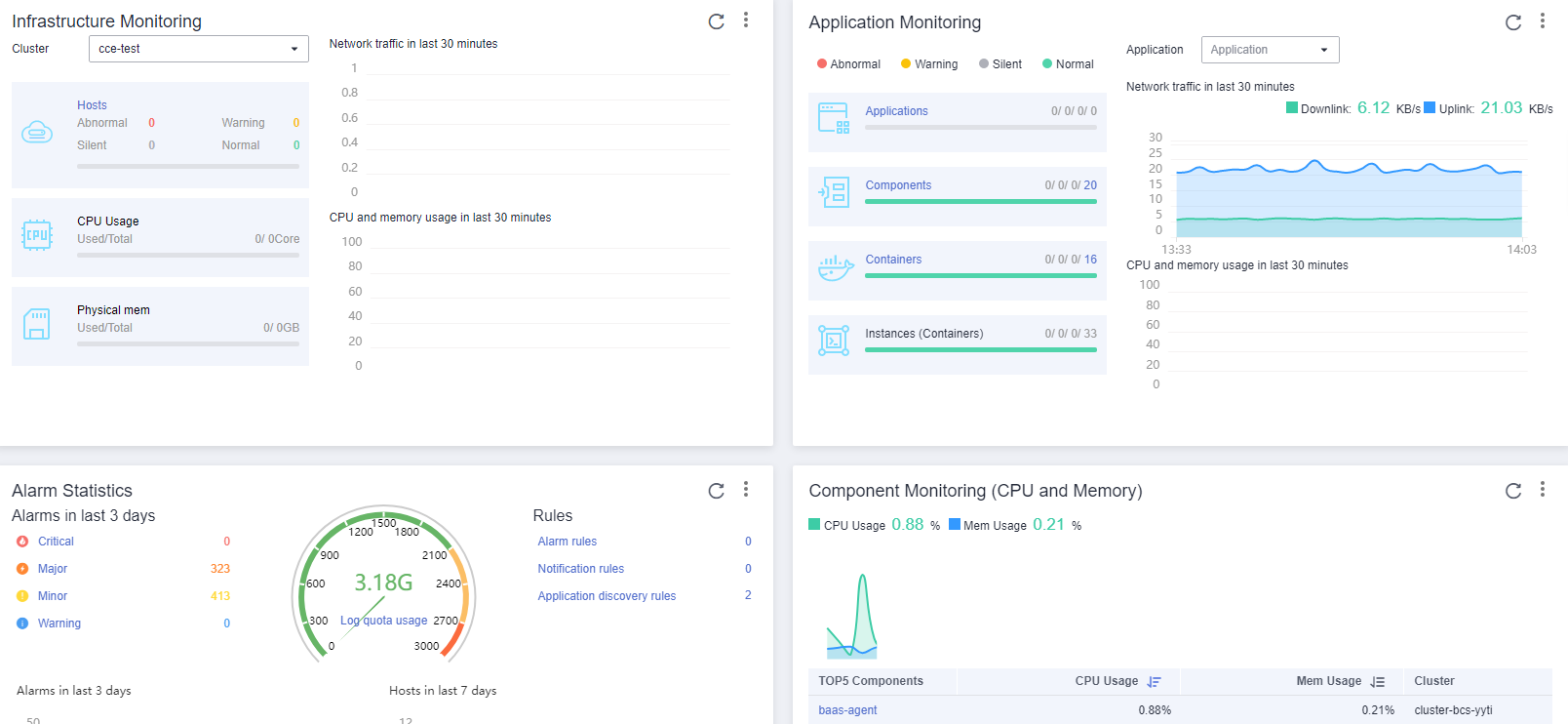Functions
BCS provides the following functions to help you quickly deploy blockchains featuring security, high efficiency, and cost-effectiveness.
Instance Deployment
BCS provides enhanced Hyperledger Fabric and Huawei Cloud blockchain instances. You can purchase resources when deploying a blockchain system, without a need to prepare resources required by the system in advance.
- The blockchain network configuration and deployment are completed in minutes, instead of days.
- Underlying technological details are masked. You do not need to care about the underlying technology implementation and platform construction.
- You can create consortium or private blockchains.
For details, see Deployment Using a CCE Cluster.
Instance Management
You can check the running statuses of your BCS instances and perform operations on them, for example, adding organizations, upgrading, and obtaining client configurations.
For details, see Instance Management.
Chaincode Management
You can manage chaincodes on the graphical user interface (GUI) throughout the entire chaincode lifecycle, including coding, debugging, installation, instantiation, and upgrade.
For details, see Chaincode Management.
Block Browser
In the block browser, you can query the block and transaction quantities and details, peer statuses, and performance data for blockchain maintenance.
For details, see Block Browser.
Channel Management
Channels provide communication channels for organization nodes. You can create channels and add organizations and peers to them.
For details, see Channel Management.
Downloading SDK Configurations and Certificates
Before developing an application, download the certificates and SDK configurations. The user certificates are used for common transactions and queries. SDK configurations enable easy access to the blockchain network to complete transactions. You do not need to manually configure the SDKs.
For details, see Downloading SDK Configurations and Certificates.
Consortium Management
After creating an enhanced Hyperledger Fabric service as a consortium blockchain, you can invite tenants to join the consortium.
For details, see Consortium Management.
Add-on Management
Add-ons allow you to extend the functionality of BCS instances as required. On the Add-on Management page, you can install add-ons and upgrade, uninstall, and check details about the installed add-ons.
For details, see Add-on Management.
Monitoring and O&M
BCS supports monitoring of enhanced Hyperledger Fabric services. O&M personnel can check metrics and logs on the console. For details, see Viewing Monitoring Data and Logs.

Feedback
Was this page helpful?
Provide feedbackThank you very much for your feedback. We will continue working to improve the documentation.See the reply and handling status in My Cloud VOC.
For any further questions, feel free to contact us through the chatbot.
Chatbot





